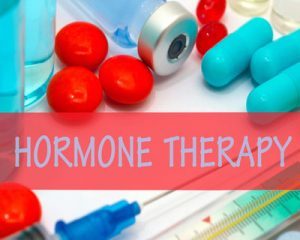- Home
- Editorial
- News
- Practice Guidelines
- Anesthesiology Guidelines
- Cancer Guidelines
- Cardiac Sciences Guidelines
- Critical Care Guidelines
- Dentistry Guidelines
- Dermatology Guidelines
- Diabetes and Endo Guidelines
- Diagnostics Guidelines
- ENT Guidelines
- Featured Practice Guidelines
- Gastroenterology Guidelines
- Geriatrics Guidelines
- Medicine Guidelines
- Nephrology Guidelines
- Neurosciences Guidelines
- Obs and Gynae Guidelines
- Ophthalmology Guidelines
- Orthopaedics Guidelines
- Paediatrics Guidelines
- Psychiatry Guidelines
- Pulmonology Guidelines
- Radiology Guidelines
- Surgery Guidelines
- Urology Guidelines
Menopausal hormone therapy improves bone health

Women who undergo hormone therapy for menopausal symptoms such as hot flashes can not only increase bone mass, but also can improve bone structure, according to a new study published in the Endocrine Society's Journal of Clinical Endocrinology & Metabolism.
Previous studies have revealed the positive impact of menopausal hormone therapy (MHT) on bone mineral density. The new study is the first to show MHT also can improve bone mass and structure, and that the bone health benefits persist for at least two years after women stop treatment.
"When used in the right context, specifically in postmenopausal women younger than 60 years old for whom the benefits outweigh risks, menopausal hormonal therapy is effective for both the prevention and treatment of osteoporosis," said the study's first author, Georgios Papadakis, MD, of the Lausanne University Hospital in Lausanne, Switzerland.
Osteoporosis is a progressive condition in which bones become structurally weak and are more likely to fracture or break. Menopause, which usually occurs when a woman is in her 40s or 50s, significantly speeds bone loss. Over time, the human body is constantly breaking down and building new bone tissue. The imbalance between bone breakdown and formation causes bone mass to decrease, so osteoporosis can develop and fractures can occur more easily.
The cross-sectional study is based on data from the OsteoLaus cohort. The cohort consisted of 1,279 women ages 50 to 80 residing in the city of Lausanne, Switzerland. The participants were divided into three categories: 22 percent were undergoing MHT during the study, 30 percent were past users and 48 percent of women had never used MHT.
To measure whether MHT influenced bone health, researchers used dual x-ray absorptiometry (DXA) scans of the participants' lumbar spine, femoral neck and hip to assess bone mineral density. Based on the scan results, the women were assigned a Trabecular Bone Score assessing the quality of their underlying bone structure. This score can be used to predict fracture risk in postmenopausal women.
Age and body mass index were major factors used in the study. Other variables included the history of fractures in participants, and the use of supplements such as current or past use of calcium and/or vitamin D. Blood test results for vitamin D levels from 1,204 out of the 1,279 participants were also factored into the study.
The researchers found higher Trabecular Bone Scores in current MHT users compared to past users or women who had never used MHT. All bone mass density values were significantly higher in current users compared to past users or participants who had never used MHT. Past users of the therapy exhibited higher bone mass density and a trend for higher bone microarchitecture values compared to women who had never used MHT. The researchers note that the duration of MHT had no effect on bone health.
"Women at menopause should take note of this study, because its results can help optimize the use of menopausal hormone treatment in women at risk of osteoporosis," Papadakis said.

Disclaimer: This site is primarily intended for healthcare professionals. Any content/information on this website does not replace the advice of medical and/or health professionals and should not be construed as medical/diagnostic advice/endorsement or prescription. Use of this site is subject to our terms of use, privacy policy, advertisement policy. © 2020 Minerva Medical Treatment Pvt Ltd